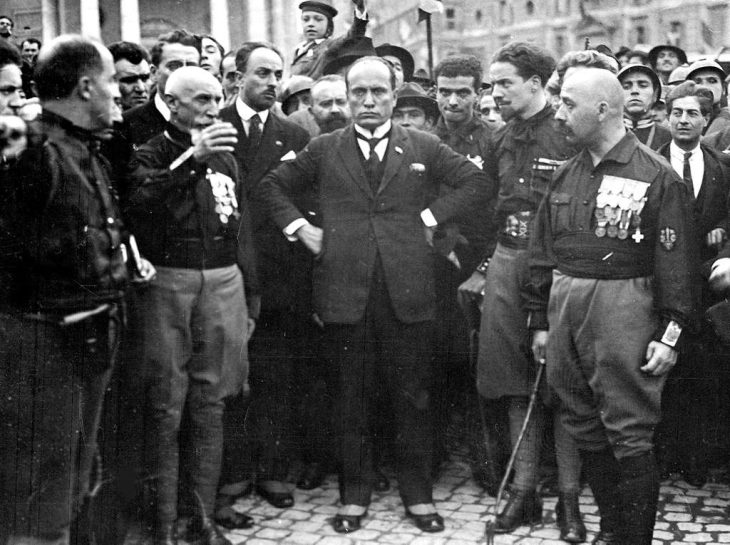
Word of the Day: Pedantic
Today’s word of the day, courtesy of Merriam-Webster, is pedantic. M-W’s dictionary website says, “Pedantic describes someone or something that exhibits the characteristics of a pedant—that is, a person who often annoys other people by correcting small errors and giving too much attention to minor details. Pedantic also means ‘narrowly, stodgily, and often ostentatiously learned’” (https://www.merriam-webster.com/word-of-the-day). A more definition-like definition reads, “ostentatious in one’s learning” or “overly concerned with minute details or formalisms, especially in teaching” (https://www.dictionary.com/browse/pedantic).
M-W says further, “In Shakespeare’s day, a pedant was a male schoolteacher. The word’s meaning was close to that of the Italian pedante, from which the English word was adapted. Someone who was pedantic was simply a tutor or teacher. But some instructional pedants of the day must have been pompous and dull because by the early 1600s both pedant and pedantic had gained extended senses applying to anyone who was obnoxiously and tediously devoted to their own academic acumen. When describing arguments, pedantic can be used for instances where one relies too heavily on minor details as a way to show off one’s intelligence” (https://www.merriam-webster.com/word-of-the-day). It might seem hard to believe for some of you that there were male school teachers, or any school teachers, back in Shakespeare’s day. But in Act 2, scene 7 of Shakespeare’s As You Like It, in the famous “Seven Ages of Man” speech by Jacques, the second age is “Then the whining schoolboy, with his satchel / And shining morning face, creeping like snail / Unwillingly to school” (https://poets.org/poem/you-it-act-ii-scene-vii-all-worlds-stage).
It was “formed in English c. 1600, from pedant + -ic. The French equivalent is pédantesque. Perhaps first attested in John Donne’s ‘Sunne Rising,’ where he bids the morning sun let him and his love linger in bed, telling it, ‘Sawcy pedantique wretch, goe chide Late schooleboyes’” (https://www.etymonline.com/search?q=pedantic). Pedant entered the language in the “1580s, ‘schoolmaster,’ from French pédant (1560s) or directly from Italian pedante, literally ‘teacher, schoolmaster,’ a word of uncertain origin, apparently an alteration of Late Latin paedagogantem (nominative paedagogans), present participle of paedagogare (see pedagogue). Meaning ‘person who trumpets minor points of learning, one who overrates learning or lays undue stress on exact knowledge of details or trifles as compared with large matters or general principles’ is recorded by 1590s” (ibid.).
On this date in 1919, “Benito Mussolini forms Fascist group Fasci di Combattimento (Italian Fighting Bands) in Milan, Italy—later reorganized into National Fascist Party” (https://www.onthisday.com/today/events.php?utm_source=email&utm_medium=newsletter).
Mussolini (1883-1945) was an Italian journalist and politician. His father was a socialist who named him after socialists. After school, he moved to Switzerland to avoid the Italian draft, and there he “studied the ideas of the philosopher Friedrich Nietzsche, the sociologist Vilfredo Pareto, and the syndicalist Georges Sorel. Mussolini also later credited the Christian socialist Charles Péguy and the syndicalist Hubert Lagardelle as some of his influences. Sorel’s emphasis on the need for overthrowing decadent liberal democracy and capitalism by the use of violence, direct action, the general strike, and the use of neo-Machiavellian appeals to emotion, impressed Mussolini deeply” (https://en.wikipedia.org/wiki/Benito_Mussolini).
He returned to Italy in 1904 and served two years in the army. He then became deeply involved in socialist politics. He read widely, mostly in socialist philosophy, including Marx and Engels. He became a prominent leader in the socialist movement in Italy. He was arrested in 1911 for participating in a riot protesting Italy’s “imperialist” war in Libya. In 1912, he became a “a member of the National Directorate of the Italian Socialist Party (PSI). He was rewarded with the editorship of the Socialist Party newspaper Avanti! Under his leadership, its circulation soon rose from 20,000 to 100,000. John Gunther [1901-1970; an American journalist and writer] in 1940 called him “one of the best journalists alive”; Mussolini was a working reporter while preparing for the March on Rome, and wrote for the Hearst News Service until 1935” (ibid.).
When World War I started in 1914, some national socialist parties supported entering the war, but the Italian socialist party decided to oppose participation in the war. At first, Mussolini supported the party’s position, but eventually he shifted his position, seeing the war as a chance to upend the Hapsburg rule of some Italian-speaking regions that were under the control of Austria-Hungary. As a result of this change of heart, the Italian socialist party expelled Mussolini from its ranks.
This expulsion from the socialist party set Mussolini on the path to becoming Il Duce, the leader for life in a fascist Italy. There were certainly aspects of socialism that Mussolin rejected in his later years—he favored nationalism over class distinctions, for instance. But his thinking was strongly influenced by socialists and syndicalists. But he firmly believed, as do the socialists, that the State is more important than any individual. And like the socialists and even the progressives, Mussolini and the fascists rejected classical liberalism and the democratic impulse. Attempts to deny the close relationship between the fascist and the socialist Weltanschauung is mere pedantry.
Today’s image is of Benito Mussolini during the March on Rome, 28 October 1922 (https://timelessmoon.getarchive.net/amp/media/march-on-rome-8c625d).